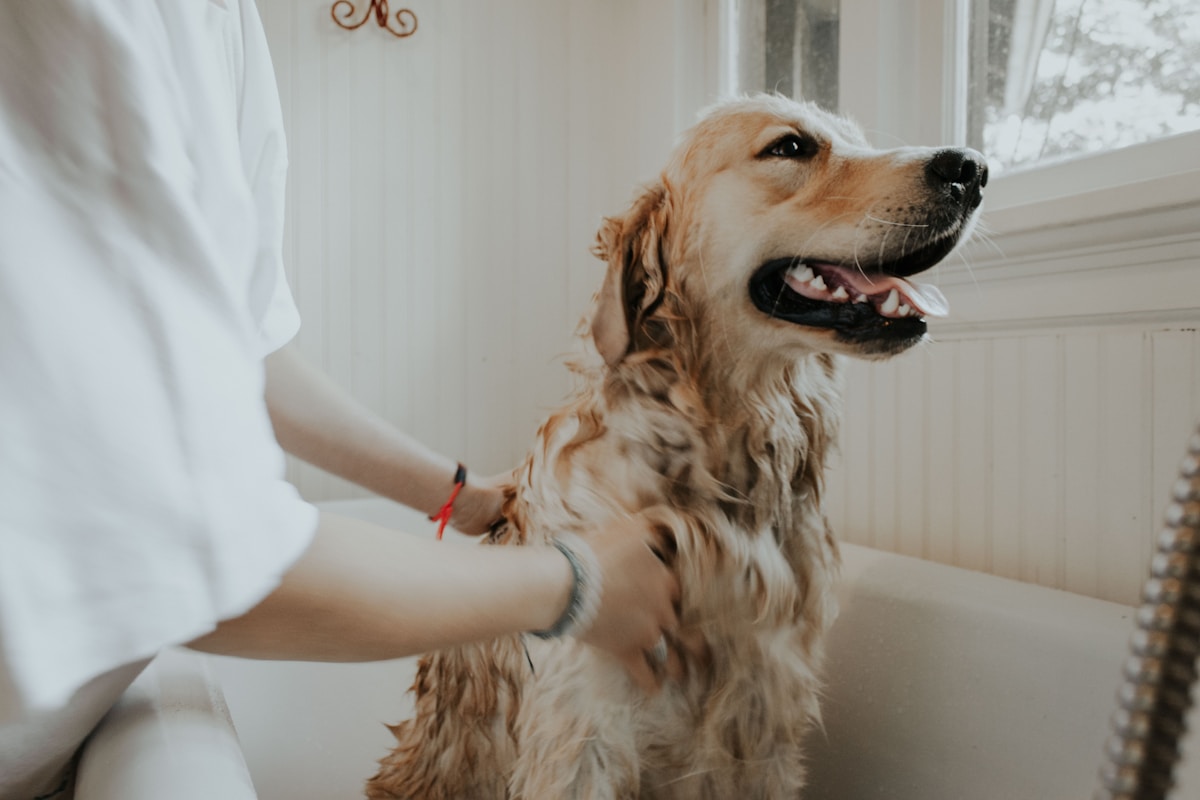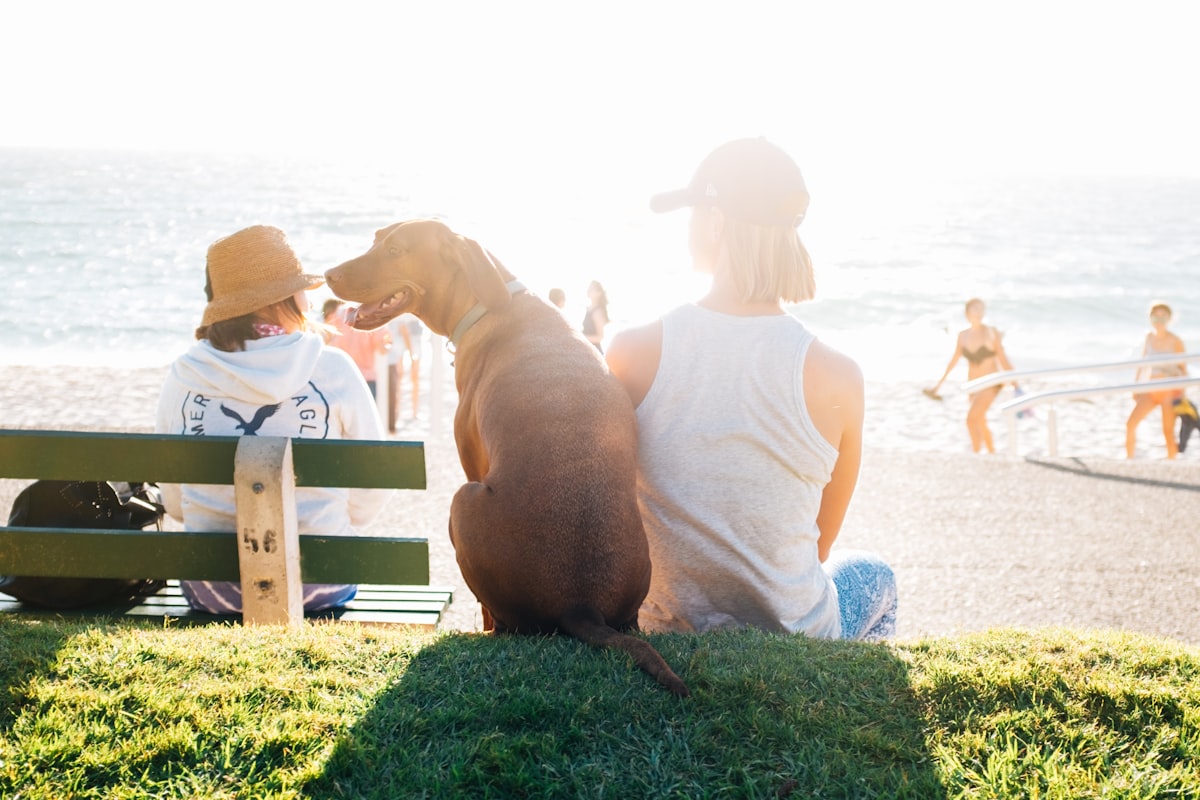"While enjoying the outdoors, it is important to keep both your family and your pet safe by being aware of all the possible dangers of a new area."
Let's investigate most common dangers for pets while we enjoy summer and spend a lot of time outdoors. It doesn't mean that you have to spend less time with your furry friend, it means that you have to be ready and know tips from KeepPet vets.
Pets parasites

Not only can parasites be a nuisance, but they can also transmit harmful diseases to your pet. Mosquitoes, fleas and ticks bite and feed off your pet’s blood, and your pet can also contract diseases that the parasite is carrying.
Mosquitoes can transmit heartworm to dogs and cats. Heartworm is caused by a parasitic worm that can infect your pet’s heart, lungs and surrounding blood vessels. If left untreated, it can lead to heart and lung failure and ultimately death. It is not always possible to tell if your dog is infected until the infection is severe, as this is when your pet will first start displaying symptoms. Heartworm prevention medications don’t treat the infection if it’s already there, so if there has been any lapse in heartworm prevention, we recommend you talk to your veterinarian.
Tick bites can transmit Lyme’s disease. This is caused by bacteria and can cause varying symptoms. Treatment is most effective when caught early. To reduce the risk of your pet contracting a disease, it is recommended to use anti-parasite treatments recommended by your veterinarian coupled with daily tick searches and prompt removal using a tick remover. Lyme vaccination is also available for high-risk dogs, but isn’t foolproof, and should be used as an addition to preventatives. If you aren’t sure whether your tick and heartworm prevention is sufficient, our vets will be able to tell you whether your pet is fully covered, or whether there are more recommended products to keep them safe.
Infections
Ensuring our pets are up to date with their vaccinations is paramount to their health - and ours! Pets are more likely to encounter other pets whilst we socialise in new surroundings. Pets should be vaccinated against diseases like parvovirus, a viral infection of dogs, which causes bloody diarrhoea and vomiting. It is spread by infected faeces and can be deadly to your pup. Other diseases, like the bacterial infection leptospirosis, can cause liver and kidney failure. This is life-threatening to dogs, but they can also spread it to humans. If you are unsure whether your pet is up to date with their vaccinations, then it is best to check this with one of our veterinarians.
Sun and heat

Cats and dogs cannot respond to heat in the same way as we do. Pets exposed to high temperatures for even the shortest duration can quickly develop heatstroke and this can lead to death if not treated promptly. Symptoms of heatstroke include excessive panting, increased heart rate, red or pale gums, dizziness, drooling, restlessness, collapse and seizures. It is therefore essential to prevent your pets from overheating by providing a cool, well-ventilated area and ensuring access to plenty of clean, fresh water. It is best to avoid walking your pets during peak temperatures. Early morning and late evening will typically be cooler, so take your pet out then. It is particularly important to take extra care if you own a flat-faced breed such as a French Bulldog or Pug since they are more prone to the effects of heat and can develop heatstroke more readily.
Just like us, pets may be vulnerable to sunburn and the harmful effects of UV rays. It is important to protect your pets with a pet-specific sunscreen. If you aren’t sure which products to buy for your pet, one of our veterinarians will be able to advise. Do not put human sunscreen on them since these may contain toxic ingredients. Sunscreen should be applied to areas of naturally thin fur, such as the ears and belly, and to areas where the fur has been removed, such as for surgery.
It hurts when you walk barefoot on hot sand or asphalt, right? It’s no different for your pets. Be sure to stick to grass and keep walks short on hot days to avoid painful burning and blistering of pads. Again, walking in the cooler times of day is important.
Water woes

Thinking of heading to the beach or having a relaxing day by the pool with your pet? Pets may also enjoy the cooling effects of splashing in the water but it’s important to remember not all dogs are good swimmers. Ingestion of large amounts of seawater can lead to salt poisoning and vomiting, neurological symptoms or even death. Pets should also be discouraged from drinking chlorinated pool water. It’s important to stay close to your pets and keep an eye on them in the water, that way you can all have safe summertime fun. Rinsing your dog off after being in the pool or sea can help to wash off chlorine or salt from their fur and stop them from licking it off. Always have a supply of fresh water with you.
Pet allergy
Pollen counts are high in the summer and this can have a negative effect on your pet’s skin. Pets start to get itchy and this can lead to red, broken and irritated skin. Bacteria and fungi living normally on the skin take advantage of the damaged skin barrier which leads to painful, sore and infected skin. Excessive heat and access to water will only exacerbate the problem. If your pet’s skin is looking sore this summer or your pet is prone to allergies it is important to contact a veterinarian for advice.
Picnics and barbeques

Picnics and barbeques can pose all sorts of dangers to your pets. Feeding chicken bones, corn on the cob or skewers to your pet can cause a blockage or perforation in your pet’s stomach or intestines. This will cause your pet to become very ill- and they will likely need an operation to remove the stuck portion. Certain foods may be toxic to your pets: onions, garlic, chocolate, grapes (including raisins and sultanas) and alcohol are a few examples, but there are others to be aware of, too. Feeding pets foods with a high-fat content may cause a painful condition called pancreatitis, and any change to your pet’s diet can cause digestive problems. To avoid these problems, don’t be tempted to offer your pet leftovers from the table, and keep the trashcan well out of reach. If you do spot your dog eating anything or you think they’re displaying symptoms, you should contact one of our veterinarians for advice.
Backyard dangers

Common garden fertilizers and pesticides as well as some garden plants can be toxic to our beloved pets. It is better to not use any at all or opt for pet-safe products. Be sure to store containers in a safe place away from inquisitive pets. If you think your pet has ingested something toxic, then you must ask a veterinarian’s advice immediately.
Venomous creatures

The curious nature of our pets can land them in dangerous situations. While investigating strange creatures, encounters with venomous snakes, toads, scorpions and spiders can quickly escalate into life-threatening conditions. When you are exploring unfamiliar territory, it is important to keep dogs on a leash so that they do not accidentally stumble upon a venomous creature. Cats should also be kept indoors in a new area. If you believe your pet has been in contact with a venomous creature then you should contact a veterinarian immediately.
As a pet owner and traveller, you’ll want to make sure both you and your pet have a fun and healthy summer. While enjoying the outdoors, it is important to keep both your family and your pet safe by being aware of all the possible dangers of a new area. We’ve set out a few here - but don’t forget to investigate local differences. When visiting unfamiliar areas, having the KeepPet app with you is a great way to make sure you have veterinary advice to hand when you need it. It is also a great idea to have a list of the local emergency veterinary clinics, in case our veterinarians refer you to one in an emergency.
For peace of mind, download KeepPet app from the App Store or Google Play today.
